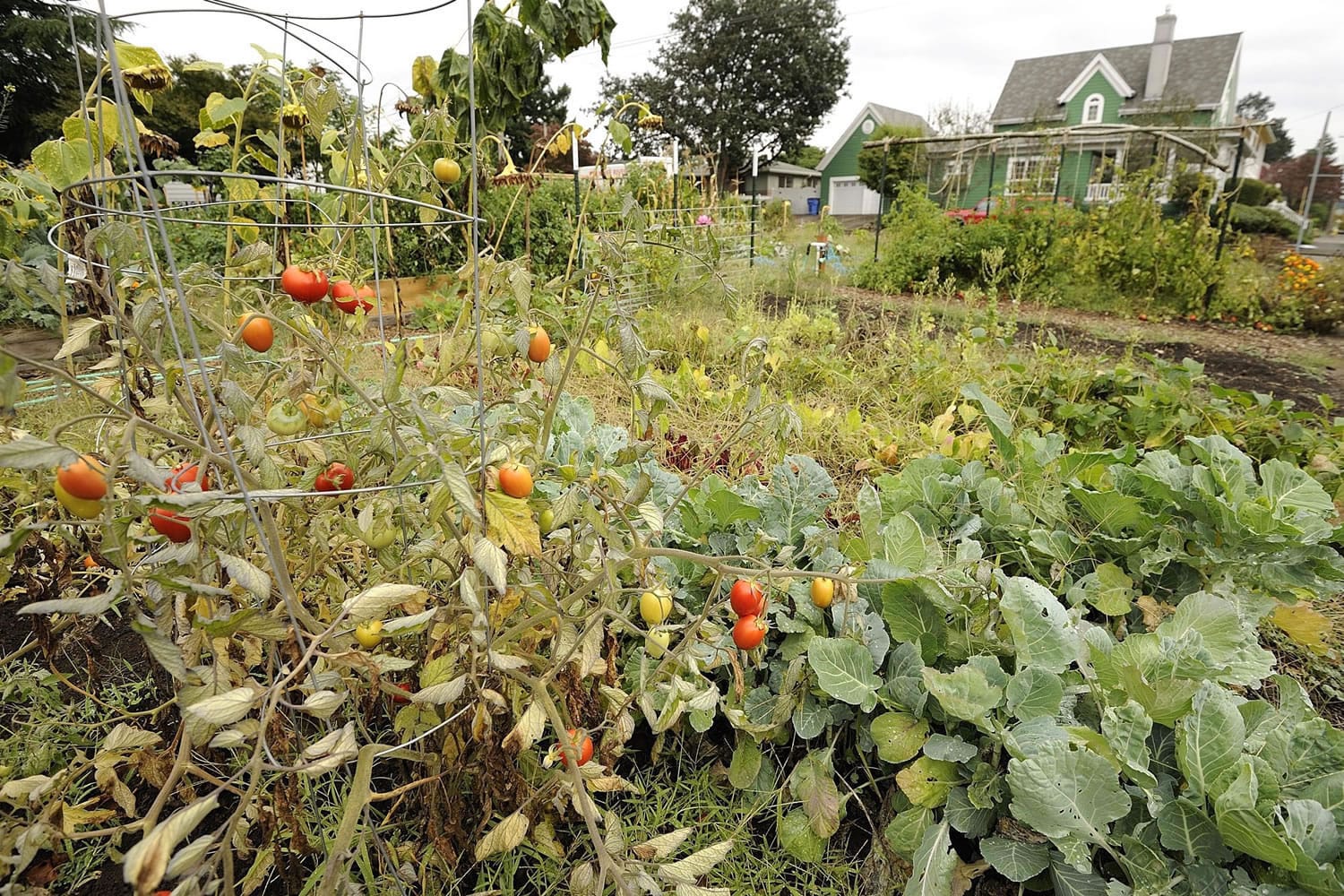o For more information about the Neighborhood Association Sustainability Grants program, call the Vancouver Watersheds Alliance at 360-852-9189 or visit the website.
One neighborhood launches an experiment in rain barrels. Another installs a small section of experimental sidewalk. Still another plants a neighborhood garden on a once-empty lot.
Each project sprouted independently from its own locale in Vancouver. But each shares at least one thing in common: All were boosted by the same Vancouver Watersheds Alliance grant program.
Gary Bock says to keep them coming.
“The more varied the ideas are, the better the grant program will be,” said Bock, the organization’s executive director. “What I’d really like to see is more and more creative ideas coming out of this.”
The Vancouver Watersheds Alliance’s Neighborhood Association Sustainability Grants program has jump-started a wide-ranging collection of about 20 projects since its inception. Now in its third year, the program also filled a void left by city-funded initiatives that phased out the same year.
The city’s Office of Neighborhoods provided regular grant funding from 1995 to 2009, before that money dried up as a result of budget constraints, according to program manager Judi Bailey. The city is “very appreciative” to the watersheds alliance for filling that gap, she said.
Bock said the goal of encouraging sustainability projects is simple: neighborhood unity.
“It’s really about bringing the neighbors together to do something positive,” Bock said. “So often, neighborhood associations come together around a problem. We’re looking for something to keep them together around something positive.”
Projects have taken many forms. West Vancouver’s Lincoln neighborhood used a grant to put up a community bulletin board, Bock said. The Hudson’s Bay neighborhood recently established a garden at East Eighth and T streets. That project took the place of an “awful little vacant lot” there before, Bock said.
One of the program’s newest endeavors doesn’t look like much to the average passer-by. But a small section of “rubber sidewalk” in the Hough neighborhood is the only one of its kind in Portland or Vancouver, said Hough resident Melissa Tiefenthaler, who helped plan the project as co-chair of the neighborhood association.
The sidewalk — laid down in August with small, light gray panels made from recycled rubber — is designed to move more easily with tree roots shifting under it.
“The product won’t crack like regular concrete, and it lasts much longer,” Tiefenthaler said.
The project received $1,500 from the watersheds alliance, and just over $3,000 from a one-time city street grant program — that’s separate from the neighborhood funding that phased out two years ago, Bailey said.
Another new-look project will begin to take shape this winter. Once they get materials, residents in east Vancouver’s Northfield neighborhood will build rain barrels to harness and conserve water. Organizers hope to have them in use by early spring — just before the end of the rainy season, said Northfield Neighborhood Association treasurer Esther Schrader. That test run should prepare users for the brunt of a wet fall and winter next year, she said.
The neighborhood association hopes to purchase enough materials for 20 barrels, then build them as orders come in. Schrader said residents simply heard about the growing trend — using collected rainwater to tend lawns and gardens, saving municipal water — then took it to neighborhood association leaders. They soon received the green light to apply for the grant, she said.
By next spring, Northfield residents with rain barrels will join rare company. They even came up with a campaign slogan: Roll Out the Barrels.
“We’re kind of excited,” Schrader said.
The watersheds alliance budgets $12,000 annually for the grant program, Bock said, offering a limit of $1,500 per grant. But only once has the organization received more applications than it could fund, he said.




